#Solar Packages
Explore tagged Tumblr posts
Text
No.1 Home & Commercial Solar Solutions by JPS Group

JPS Group brings renewable energy to homes and businesses with premium solar panel installations, EV charge points, Enphase systems, and Tesla Powerwall batteries. Choose from tailored Silver, Gold, or Platinum packages, or opt for bespoke solar PV systems designed to reduce energy costs and support Net Zero goals by 2050.
#Solar Panel Installation#EV Charge Points#Tesla Powerwall#Enphase Systems#Residential Solar#Commercial Solar#Renewable Energy#Net Zero#Solar Packages#Energy Savings
0 notes
Text
Step-by-Step Guide to Choosing a Solar System in Australia

With the rising costs of electricity and increasing awareness of environmental sustainability, installing a solar system has become an appealing option for Australian homeowners and businesses.
However, choosing the right solar system can be a complex task, especially with various solar packages, rebates, and technical details to consider.
This step-by-step solar system guide is designed to simplify the process, helping you make an informed decision on the best solar system for your needs.
Understand Your Energy Requirements
Before diving into the specifics of solar panel packages or browsing affordable solar solutions, it's important to assess your current energy consumption.
By understanding how much energy your household or business consumes on a monthly and yearly basis, you can determine the size and type of solar system you'll need.
How to Calculate Your Energy Usage:
Review your electricity bills to find your average monthly usage, usually measured in kilowatt-hours (kWh).
Think about any potential changes in your energy use, such as adding new appliances, or if your household is likely to grow.
A general rule of thumb is that a typical household in Australia uses between 15-25 kWh per day.
Once you have a good understanding of your energy needs, you'll be better equipped to choose the appropriate solar solutions.
Research Different Solar Panel Solutions
Not all solar systems are created equal. There are various solar panel packages available in Australia, offering different levels of efficiency, durability, and output. It's essential to familiarize yourself with these options to choose the best fit for your home or business.
Types of Solar Panels

When choosing a solar panel, it’s crucial to understand the different types available. Each type offers specific benefits based on your energy needs, roof space, and budget.
Polycrystalline Solar Panels
Affordable but Less Efficient: Polycrystalline panels are slightly less efficient compared to monocrystalline but offer a more budget-friendly option. While the technology is somewhat outdated, it remains a popular choice for those looking for cost-effective solutions.
2. Monocrystalline Solar Panels
High Efficiency and Sleek Design: Monocrystalline panels are known for their superior efficiency, often reaching the highest levels compared to other types. Their sleek, black appearance also makes them a popular choice for homes.
Types
PERC (Passivated Emitter and Rear Contact) Panels: These are an advanced form of monocrystalline panels designed to increase efficiency by reflecting light back into the cell, allowing for more energy absorption.
Bifacial Panels: These panels can capture sunlight from both sides, increasing their energy output. They are ideal for ground-mounted systems or installations with reflective surfaces.
Half-Cut Panels: These panels are designed by cutting solar cells in half, reducing electrical resistance and improving efficiency and durability. Half-cut technology also allows panels to produce power more effectively even in shaded conditions.
Solar Inverters
The solar inverter is a crucial component of any solar system. It converts the direct current (DC) energy produced by your solar panels into alternating current (AC), which can be used in your home.
Choosing the right inverter size is essential to the efficiency, reliability, and future expansion of your solar system.
Inverter Sizing Guidelines:
6.6kW System Requires a 5kW Inverter: Ideal for small to medium homes, this inverter size ensures the system runs efficiently, optimizing energy output without overloading. It also allows the system to handle potential future panel additions.
To Know More About Step-by-Step Guide to Choosing a Solar System in Australia CLICK HERE.
0 notes
Text
The Importance of Quality Assurance in Solar Wholesale Products

In the solar industry, the promise of renewable energy is only as strong as the reliability and efficiency of the products used. For solar wholesaler, maintaining high standards of quality assurance is critical to ensuring that their solar products meet the rigorous demands of both performance and durability. From solar panels and solar inverters to solar batteries and comprehensive solar packages, quality assurance is not just a regulatory requirement but a cornerstone of customer satisfaction and long-term success in the solar market.
1. Ensuring Product Reliability
Solar wholesalers play a crucial role in the solar supply chain, acting as the bridge between manufacturers and end-users, such as installers and commercial solar projects. The reliability of the solar products they distribute—ranging from solar panels and solar inverters to solar batteries and Powerwall systems—depends significantly on the quality assurance processes implemented by these wholesalers.
Quality assurance involves rigorous testing and inspection procedures to ensure that products perform consistently and reliably under various conditions. For example, solar panels must undergo tests for durability, weather resistance, and efficiency to ensure they can withstand environmental stresses and maintain high performance over their expected lifespan. Solar inverters, which are critical for converting solar energy into usable electricity, must be tested for efficiency and safety to prevent system failures and energy losses.
By adhering to stringent quality assurance standards, solar wholesalers ensure that the products they supply will perform effectively and reliably, thereby meeting the expectations of installers and end-users. This reliability is essential for maintaining trust and satisfaction in the solar industry.
2. Enhancing Customer Satisfaction
For solar wholesalers, customer satisfaction is paramount. Poor-quality products can lead to system failures, decreased efficiency, and increased maintenance costs, all of which negatively impact customer satisfaction and the reputation of the wholesaler. Ensuring that only high-quality, thoroughly tested products reach the market is crucial for building and maintaining strong relationships with customers.
Quality assurance processes help wholesalers avoid issues such as defective solar panels, unreliable solar inverters, or inefficient solar batteries. By providing products that meet or exceed industry standards, wholesalers contribute to the success of their customers—whether they are solar installers, commercial solar projects, or residential users.
Furthermore, many solar wholesalers offer comprehensive solar packages that include all necessary components for a complete solar energy system. Ensuring the quality of each component within these packages is essential for delivering a reliable and efficient solution. This attention to detail not only enhances customer satisfaction but also strengthens the wholesaler’s reputation as a trusted supplier of high-quality solar products.
3. Reducing Long-Term Costs
Investing in quality assurance can also lead to significant long-term cost savings for both wholesalers and their customers. High-quality solar products are more likely to perform efficiently and require less frequent maintenance or replacement, reducing the overall lifecycle costs of solar systems.
For wholesalers, maintaining high standards of quality assurance helps prevent costly returns, repairs, and customer complaints. Products that are rigorously tested and proven to be reliable are less likely to fail prematurely, minimizing the need for warranty claims and associated costs.
For customers, reliable solar products translate to better performance and lower maintenance expenses. Solar panels and inverters that operate efficiently over their expected lifespan ensure that users get the most value from their investment in renewable energy.
4. Building a Strong Brand Reputation
In the competitive solar market, a strong brand reputation can set a wholesaler apart from the competition. Quality assurance is a key factor in building and maintaining a positive brand image. Wholesalers that consistently deliver high-quality products are more likely to earn the trust and loyalty of their customers.
A reputation for quality assurance can also enhance a wholesaler’s standing with solar suppliers and manufacturers. Strong relationships with reputable suppliers and manufacturers are often built on mutual trust and a shared commitment to quality. By ensuring that all products meet rigorous standards, wholesalers reinforce their credibility and reliability within the industry.
5. Compliance with Industry Standards
The solar industry is governed by various standards and regulations designed to ensure the safety and efficiency of solar products. Quality assurance processes help wholesalers comply with these industry standards, which can vary by region and product type.
For example, solar panels must meet standards for performance and safety established by organizations such as the International Electrotechnical Commission (IEC) and the Underwriters Laboratories (UL). Solar inverters and batteries also have specific standards that must be adhered to in order to ensure their safety and effectiveness.
By implementing comprehensive quality assurance measures, wholesalers demonstrate their commitment to compliance and contribute to the overall integrity of the solar industry. This compliance not only helps avoid legal and regulatory issues but also reinforces the wholesaler’s dedication to delivering high-quality products.
Conclusion
Quality assurance is a vital aspect of the solar wholesale industry, impacting product reliability, customer satisfaction, long-term costs, brand reputation, and regulatory compliance. For solar wholesalers, maintaining high standards of quality control is essential to ensuring that solar panels, solar inverters, solar batteries, and other components meet the expectations of their customers and perform effectively in renewable energy systems.
By prioritizing quality assurance, solar wholesalers can enhance their reputation, build strong relationships with suppliers and customers, and contribute to the overall success and growth of the solar industry. In a market where reliability and performance are paramount, quality assurance is not just an operational necessity but a strategic advantage.
#commercial solar#supplier#powerwall#solar packages#solar wholesaler#solar wholesalers#solar wholesale#solar suppliers#wholesale solar
0 notes
Text

Discover a variety of solar panel packages in our comprehensive guide, empowering you to choose the perfect solution tailored to your specific requirements for Home
☎️ Call us now and get a FREE quote 1300 786 266. 📩 Visit us at: https://www.sunboost.com.au/exploring-the-different-solar-panel-packages/ 💻 Mail us on: [email protected]
0 notes
Text
James Hickey, a transition-year student at Dungarvan CBS in Waterford, Ireland, is developing a groundbreaking approach to food safety through his project, 'Spoiler Alert: pH-Responsive Packaging for Food Preservation'. His initiative, leverages the chemistry of natural substances to create a biodegradable food packaging film. This film incorporates red cabbage extract as a pH indicator to visually signal food spoilage.
The project draws inspiration from James' affinity for chemistry and his family's background in pharmaceuticals and farming. By integrating red cabbage extract and chitosan—a sugar derived from shellfish—James aims to produce a pH-sensitive film that changes color in response to spoilage, potentially offering a more accurate alternative to traditional expiry dates for assessing food safety.
#solarpunk#solarpunk business#solar punk#food waste#biodegradable packaging that signals food spoilage#materials innovation
53 notes
·
View notes
Text
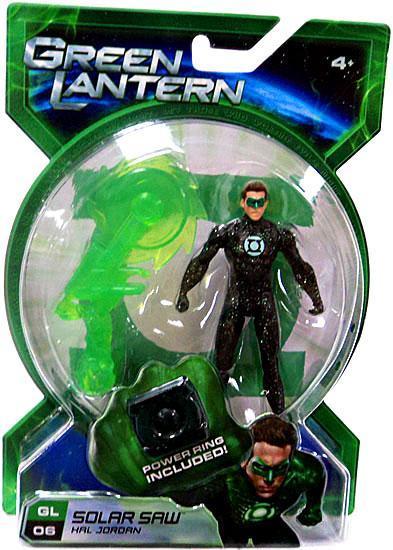
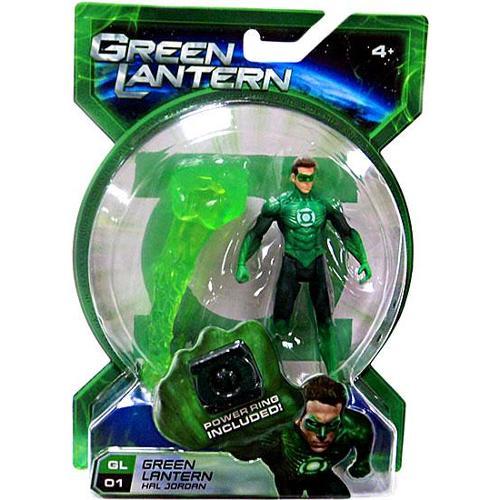


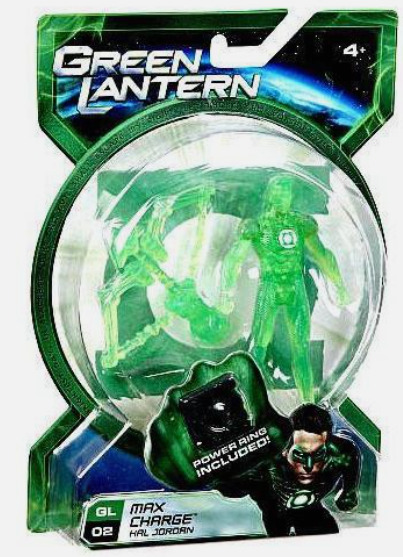


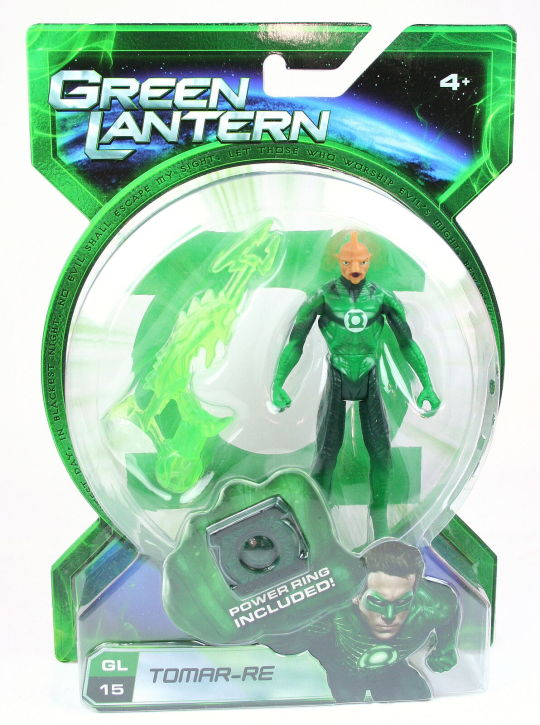
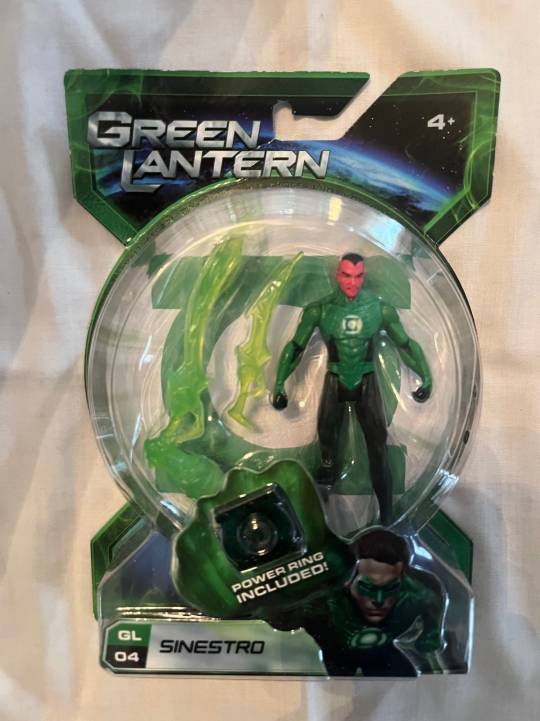
#adult collectors#adult collectibles#collectables#toys#action figures#figures#dc comics#dc universe#DC#dc multiverse#WB#warner brothers#dcu#green lantern#movie#hal jordon#power ring#package display#solar saw hal jordon#abin sur#2pack#max charge kilowog#max charge hal Jordan#G Hu#galius zed#tomat re#sinestro#green lantern corps
7 notes
·
View notes
Text

DIY yard ghost
#ghost#diy#halloween diy#the things you can do with packaging tape and solar stake lights and a dream
7 notes
·
View notes
Text
only in TFA? and some of the movies I think? most of the time they run on Energon, which changes forms in different continuities and media.
Most of the other tf fans in the notes are just saying 'no they run on energon, duh', but I think that only answers one of the questions here. Would Captain Planet think they're friends just because the fuel they use isn't a fossil fuel from earth? Sometimes energon is just a magical/scifi physical manifestation of electrical power and can be harvested from renewable resources(like g1 where they got it from dams and power plants and such). Other times it is a finite resource of magical crystals or glowing liquid that needs to be mined (series in the Aligned continuity and a lot of assorted media use energon as a source of the Autobot/Decepticon war in the first place, it's finite and Cybertron is DYING from energon harvesting). Also there might be some continuities where energon itself is a renewable resource or has sustainable alternatives? (synth en in TFP and some post-war comics touch on this, as well as Earthspark's Terrans running from a new fuel that seems to be generated by Earth through magic.)
Energon is usually shown to be clean-burning or at least have less exhaust than is typical of gasoline irl (That is probably mainly due to animation simplification, but optimus will usually have one or two moments spitting smoke from his exhaust pipes per series, as if he runs diesel like a real semi truck.) Energon seems to usually work as a combustible fuel (it explodes), but then again its not really clear how much of transformer physiology is electronic and how much is mechanical, but I don't think any series have stated transformers have a separate battery like cars do so I think it all is supposed to be powered by energon? Sure a transformer can scan and change vehicle mode to an electric model, but they would still be taking in energon and utilizing that resource the same as someone with a diesel or even coal-burning alt mode! (I dont know all that much about cars and i dont know every tf series feel free to correct me.)
Captain Planet would probably have a different opinion series to series, but for the most part he would have to contend with the fact that the Transformers are sentient alien lifeforms without the ability to change fuel source; their carbon emissions are a necessity of life like animal methane production. So unless energon in that context is clean and sustainable/has clean and sustainable alternatives, they could very well be enemies that Captain Planet feels the need to destroy.

#otherwise they could have a crossover episode focused on 'reduce' part of ''reduce reuse recycle''#where the transformers learn about transportation infrastructure and sustainable power and clean up pollution or something#bc fossil fuels probably cant be completely eliminated at least not all at once. but a huge portion can be replaced with sustainable fuel#like solar and wind can generate electricity#and we can make electric trains and buses and stuff#hasbro has i think fully switched to biodegradable packaging at this point (or are very close to)#but transformers the toyline are mainly plastic toys and rely on fossil fuels to be produced#so like.. i think the core ideal of plastic toys shaped like cars that go to war over scifi oil is still very anti-captain-planet#also the decepticons having this baggage while also sort of staging a conquest have very colonial connotations#hasbro please make a movie/series that dissects the environmental implications of the transformers thank#i know in earthspark terrans run off special magic nature water or whatever but thats just excusing these new characters from the issue#yes i have way too many thoughts on this but in my defense i live/grew up in in Oil State USA and have Opinions on car dependancy#dont ask me about my cybertron headcanons i have a goddamn folder and thats only what ive typed out#transformers#energon#essay?#long post
33K notes
·
View notes
Text
Project Report for Pharma Packaging | Icrest Models Expertise

Icrest Models offers a wide range of business services designed to support the growth and efficiency of your operations. Among our expert offerings, we provide detailed project report for pharma packaging, along with strategic insights that help businesses optimize their processes in various sectors, including the pharmaceutical industry. Our solutions focus on improving efficiency, compliance, and cost-effectiveness, ensuring your business stays ahead of the competition. Whether you need market analysis, process optimization, or tailored business strategies, Icrest Models is here to help you achieve your goals and elevate your operations to the next level.
#project report for pharma packaging#cryptocurrency model template#paint manufacturing project report#milk dairy farm project report#syringe manufacturing project report#sanitary pad project report#hotel budget planning template#detailed project report of solar power plant
0 notes
Text
Bespoke Solar Solutions with JPS Renewable Energy
JPS Renewable Energy, a Which?-approved Kent-based solar installer, brings over 40 years of expertise to deliver tailored solar PV systems. Choose from Silver, Gold, or Platinum packages or opt for bespoke designs with premium storage options like Tesla Powerwall. Enjoy energy savings, carbon footprint reductions, and long-term warranties, all backed by a 5-year installation guarantee.
#Solar Panel Installation#Battery Storage Solutions#Tesla Powerwall#Renewable Energy Kent#Solar Packages#Residential Solar Panels#Eco-Friendly Energy#Bespoke Solar Systems#Energy Savings#JPS Renewable Energy
0 notes
Text
0 notes
Text
How Solar Panels Can Reduce Energy Costs for Industries

Raybotix Technologies numerous benefits, from cost savings that are substantial to increased energy self-reliance and environmental stewardship, the addition of solar panels into the industrial operations enjoys. In relation to the increasing energy prices, it is well set as a commitment from today up to a long time: in terms of economies and sustainability for those industries that commit to utilizing solar energy. In these economies of government incentives and dwindling costs of installation, it has never been the right moment for industries to shift to solar.
#solar energy#solar panels#industries solar#ahmedabad solar company#Solar project installation Ahmedabad#Reliable solar installation Ahmedabad#Solar maintenance and installation Ahmedabad#Cheap solar installation Ahmedabad#Solar installation packages Ahmedabad#Solar panel installation Ahmedabad#solar company in ahmedabad#solar power on rooftop#solar energy residential#solar roof residential#solar panel price ahmedabad
0 notes
Text
Discover tailored solar energy solutions for small homes. Learn about system sizes, battery storage, and installation tips to maximize efficiency and savings.
#solar for small home#solar panel system for home#solar power packages for homes#complete solar system for home
0 notes
Text
Bpacks is a circular economy startup that has developed the world's first bark packaging technology, which integrates easily into existing production streams. Bark-based materials are fully compatible with current equipment for plastic packaging production, facilitating the shift to eco-packaging.
The startup is crafting packaging that is 100 per cent bio-based, with up to 75 per cent of materials sourced from production waste.
bark-based material turns into compost within a week in an active environment and enriches the compost with valuable nutrients.
Further, by utilising bark, a sidestream of wood production, as its primary raw material, Bpacks ensures that forest resources are not further strained.
With estimated bark production levels between 300 and 400 million m3 annually, the startup leverages this abundant resource to create environmentally friendly packaging solutions.
Furthermore, studies have highlighted the antimicrobial potential of bark extracts from various tree species. These extracts enhance the functionality of Bpacks' technology, which emits up to six times fewer CO2 emissions than traditional plastic production methods.
As a sidestream, forest waste is also being used by startups to make natural biochemicals, pulp-based cellulose, edible fats and oils. Its status as a living ingredient means it also has the potential to extend the life of the products which it packages according to Nešić.
#solarpunk#solarpunk business#solarpunk business models#solar punk#startup#reculture#bark into packaging material#serbia
20 notes
·
View notes
Text

Read the blog to delve into the challenges posed by hard water and explore how heat pumps can provide a sustainable solution to these problems.
Read Blog: https://www.hitechhotwater.com.au/hard-water-challenges-and-heat-pump-solutions/ Call us on: 1300 011 015 to get the best deals. Mail us on: [email protected]
#solar for small home#solar panel system for home#solar power packages for homes#complete solar system for home
0 notes
